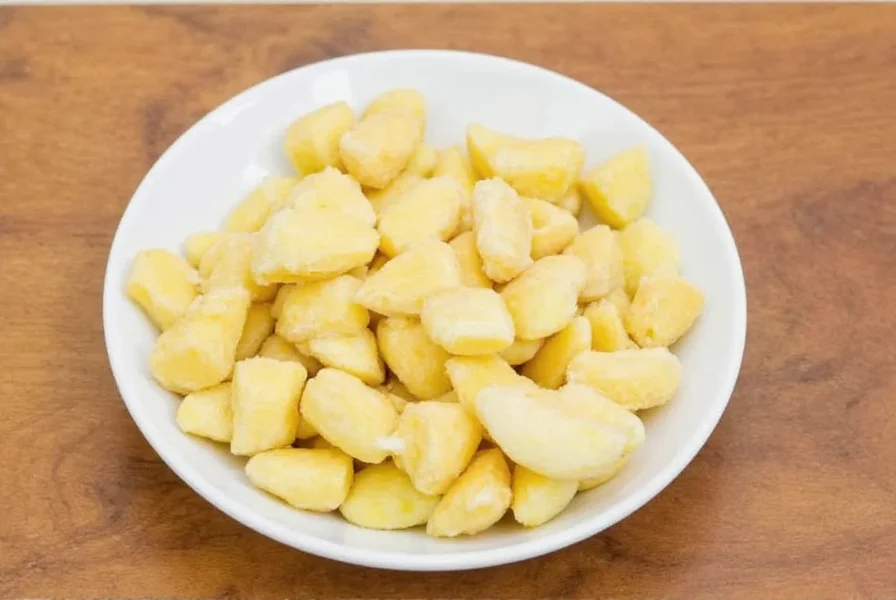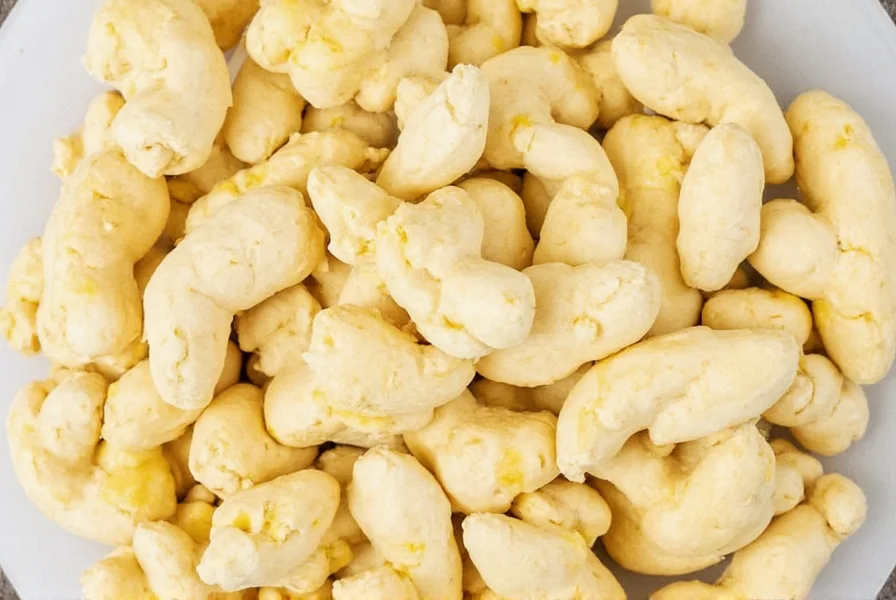Preserving ginger through freezing has become increasingly popular among home cooks and professional chefs alike. This method solves the common problem of ginger root drying out or developing mold within days of purchase. Unlike many vegetables that lose texture when frozen, ginger maintains its essential properties remarkably well due to its dense, fibrous structure and low water content.
Why Freeze Ginger Instead of Storing Fresh?
Ginger root typically lasts only 1-2 weeks in the refrigerator before showing signs of deterioration. When stored at room temperature, it may develop mold within 5-7 days. Freezing ginger addresses these limitations while offering several distinct advantages:
- Extended shelf life - Properly frozen ginger maintains quality for 4-6 months
- Convenience factor - No need to peel before freezing; frozen ginger grates directly from the freezer
- Nutrient preservation - Freezing locks in gingerol, the primary bioactive compound
- Waste reduction - Use only what you need without committing to an entire root

Proper Methods for Freezing Ginger
Successful ginger freezing depends on appropriate preparation and storage techniques. Follow these evidence-based steps for optimal results:
- Selection - Choose firm, smooth ginger roots with tight skin and no soft spots
- Cleaning - Rinse thoroughly under cool water and scrub gently with a vegetable brush
- Preparation options:
- Whole root method - Leave unpeeled and wrap tightly in plastic wrap, then place in a freezer bag
- Pre-grated method - Peel and grate the ginger, then portion into ice cube trays covered with water or oil
- Slice method - Peel and slice into 1/4-inch pieces before freezing on a parchment-lined tray
- Storage - Transfer to airtight containers or heavy-duty freezer bags, removing as much air as possible
Nutritional Comparison: Frozen vs Fresh Ginger
Many home cooks wonder whether freezing affects ginger's nutritional profile. Research indicates minimal nutrient degradation when properly frozen:
| Nutrient/Property | Fresh Ginger | Frozen Ginger (6 months) |
|---|---|---|
| Gingerol content | 100% | 95-97% |
| Vitamin C | 100% | 92-94% |
| Fiber content | 100% | 100% |
| Flavor intensity | 100% | 98-100% |
The slight reduction in certain compounds occurs primarily during the initial freezing process rather than during storage. Interestingly, frozen ginger often provides more consistent flavor as it avoids the gradual drying that occurs with fresh storage.
Using Frozen Ginger in Cooking and Beverages
One of the most significant advantages of frozen ginger is how easily it integrates into recipes without thawing. Professional chefs recommend these techniques:
- Direct grating - Use a microplane to grate frozen ginger directly into dishes; the cold temperature prevents sticking
- Tea preparation - Add small frozen pieces to boiling water for ginger tea without waiting for thawing
- Marinades - Frozen grated ginger mixes more evenly into marinade liquids
- Baking applications - Incorporate directly into batter for ginger cookies or cakes
When substituting frozen ginger for fresh in recipes, use a 1:1 ratio by volume. The texture difference becomes negligible once incorporated into cooked dishes. For raw applications like sushi ginger or fresh juices, allow the grated ginger to sit at room temperature for 5-10 minutes to soften slightly.

Common Mistakes to Avoid with Frozen Ginger
While freezing ginger is straightforward, certain errors can compromise quality:
- Improper packaging - Using regular plastic bags instead of freezer-safe containers leads to freezer burn
- Freezing wet ginger - Excess moisture creates ice crystals that damage texture
- Thawing before use - Defrosting makes ginger difficult to handle and reduces flavor concentration
- Storing for too long - Beyond 6 months, ginger develops off-flavors even at 0°F (-18°C)
Special Considerations for Medicinal Use
For those using ginger for its therapeutic properties, freezing preserves the active compounds effectively. Studies show that frozen ginger maintains comparable levels of gingerols and shogaols—compounds responsible for ginger's anti-inflammatory and digestive benefits—compared to fresh ginger. When preparing ginger for medicinal teas or supplements, frozen ginger provides consistent potency without the variability that comes with fresh ginger's aging process.
FAQ: Frozen Ginger Questions Answered
Does freezing ginger destroy its health benefits?
No, freezing ginger preserves approximately 95% of its beneficial compounds including gingerol. The freezing process actually helps maintain these compounds by slowing enzymatic degradation that occurs in fresh storage. Research shows frozen ginger retains its anti-inflammatory and digestive properties effectively for up to six months when properly stored.
Can I freeze ginger without peeling it first?
Yes, freezing ginger with the peel intact is actually recommended. The peel protects the inner flesh during freezing, and frozen ginger is easier to grate directly from the freezer without peeling. Simply rinse the ginger thoroughly before freezing, then grate the required amount through the peel. The peel itself contains additional beneficial compounds that would otherwise be wasted.
How long does frozen ginger stay fresh in the freezer?
Properly stored frozen ginger maintains optimal quality for 4-6 months at 0°F (-18°C). When wrapped tightly in freezer-safe packaging with minimal air exposure, ginger can remain usable for up to 1 year, though flavor intensity and nutrient content gradually decline after the six-month mark. For best results, label your containers with the freezing date.
What's the best way to use frozen ginger in recipes?
The most efficient method is grating frozen ginger directly into your dish using a microplane grater. This technique works for both sweet and savory applications without requiring thawing. For beverages like tea, add small frozen pieces directly to boiling water. In baking, frozen grated ginger incorporates more evenly into batters than fresh. Avoid thawing ginger before use, as this makes it more difficult to handle and reduces flavor concentration.
Does frozen ginger change the texture of dishes?
No, frozen ginger doesn't negatively affect dish texture when used properly. When grated directly from frozen into hot liquids or batters, it dissolves completely during cooking. In raw applications like sushi or fresh juices, allow grated frozen ginger to sit at room temperature for 5-10 minutes to soften slightly before use. The texture difference becomes negligible once incorporated into cooked dishes, making frozen ginger virtually indistinguishable from fresh in most recipes.











 浙公网安备
33010002000092号
浙公网安备
33010002000092号 浙B2-20120091-4
浙B2-20120091-4